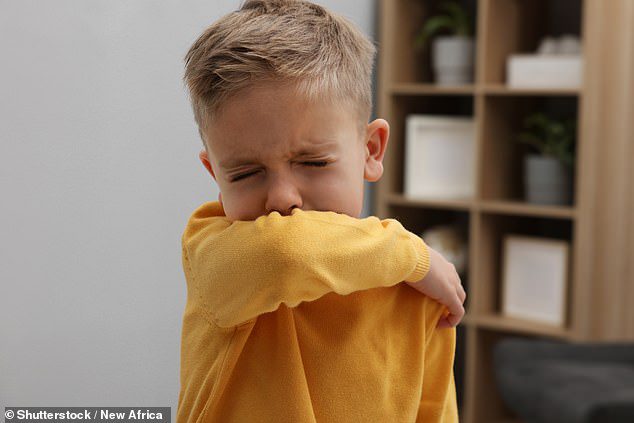
Rising Whooping Cough Cases and Mortality: A Year of Concern
In the past year, approximately ten children have tragically lost their lives to whooping cough, an illness harking back to the Victorian era, representing the highest number of fatalities linked to this disease in nearly ten years.
The Centers for Disease Control and Prevention (CDC) has documented a total of ten deaths from whooping cough in 2024, the largest figure since 2017, when thirteen fatalities were reported. The CDC further noted that last year saw 35,435 confirmed cases of this contagious illness.
Whooping cough, medically referred to as pertussis, is a highly infectious respiratory condition caused by the bacterium Bordetella pertussis. Individuals suffering from this illness experience severe coughing spells, fever, watering eyes, and, in critical instances, blue lips. The situation can escalate to vomiting, extreme fatigue, and respiratory issues, with approximately one percent of infants contracting the disease facing fatal outcomes.
According to the CDC’s report detailing whooping cough statistics for 2024, Pennsylvania and Wisconsin recorded the highest numbers of cases last year, with 2,889 and 2,647 instances, respectively. Following closely were Washington with 2,029 cases and Illinois with 2,304, while Minnesota completed the top five with 1,895 reported cases.
While data for 2025 remains preliminary, in just the past week, around 360 new cases surfaced across the country, indicating a notable 27% increase compared to the previous week. Among these, Florida reported the highest concentration, with 44 cases.
To combat whooping cough, vaccination remains the most effective preventive measure. Doctors commonly administer this vaccine alongside those for diphtheria and tetanus.
CDC spokesperson Paul Prince emphasized that "people of all ages are at risk for contracting pertussis. Anyone who has not received their whooping cough vaccination should prioritize getting vaccinated."
The tragic death of a toddler in Washington state earlier this month was attributed to whooping cough, highlighting the urgency of vaccination, as the child had not finished their pertussis vaccine series.
The Spokane Regional Health District stated that while pertussis was identified as the cause of death, other underlying health issues also played a role. Health official Dr. Francisco Velazquez noted, "This serves as a crucial reminder about the significance of vaccination, particularly for vulnerable groups, including infants and young children."
Recently, South Dakota confirmed a child’s death attributed to a co-infection of pertussis and influenza, with the state recording 268 pertussis cases last year.
Understanding Pertussis Symptoms and Vaccination
Whooping cough occurs when the bacteria adhere to tiny hairs in the throat and nose, releasing toxins that cause airway swelling. Initial symptoms mimic those of the common cold, such as a runny nose and mild cough, but can escalate to severe coughing bouts that lead to vomiting and breathing difficulties.
The CDC recommends infants receive the Tdap (tetanus, diphtheria, pertussis) vaccine at two, four, six, and between 15-18 months. Additionally, children aged four to six should get a booster shot, while preteens aged 11 to 12 are urged to receive a Tdap shot to enhance immunity against pertussis. After that, boosters are suggested every ten years.
Despite Tdap’s high efficacy—98% for children in the first year and decreasing effectiveness for teens over subsequent years—uptake has declined. The percentage of kindergarteners receiving the vaccine dropped from 95% during the 2019-2020 school year to 93% in 2023-2024, a decrease that, while seemingly minor, raises concerns about the potential for increased disease spread.
Further compounding the issue, the recent appointment of Health Secretary nominee Robert F. Kennedy Jr., known for skepticism regarding vaccine efficacy, may further undermine vaccination rates. Public health experts like Lawrence Gostin have voiced concerns, suggesting that this could set back public health advancements.
Historically, prior to the introduction of the pertussis vaccine in 1948, the U.S. experienced around 250,000 cases annually; however, the implementation of the vaccine has successfully reduced those numbers by over 90% annually.
Health officials have been sounding alarms regarding potential surges in whooping cough cases. Dr. Marcos Mestre, chief clinical operations officer at Nicklaus Children’s Health System in Miami, remarked on the increase in pertussis cases appearing in emergency departments, stating particular concern for infants who might experience severe illnesses.
In conclusion, vigilance in vaccination and public health awareness is crucial in the ongoing battle against whooping cough to safeguard the well-being of our communities, particularly the most vulnerable.









